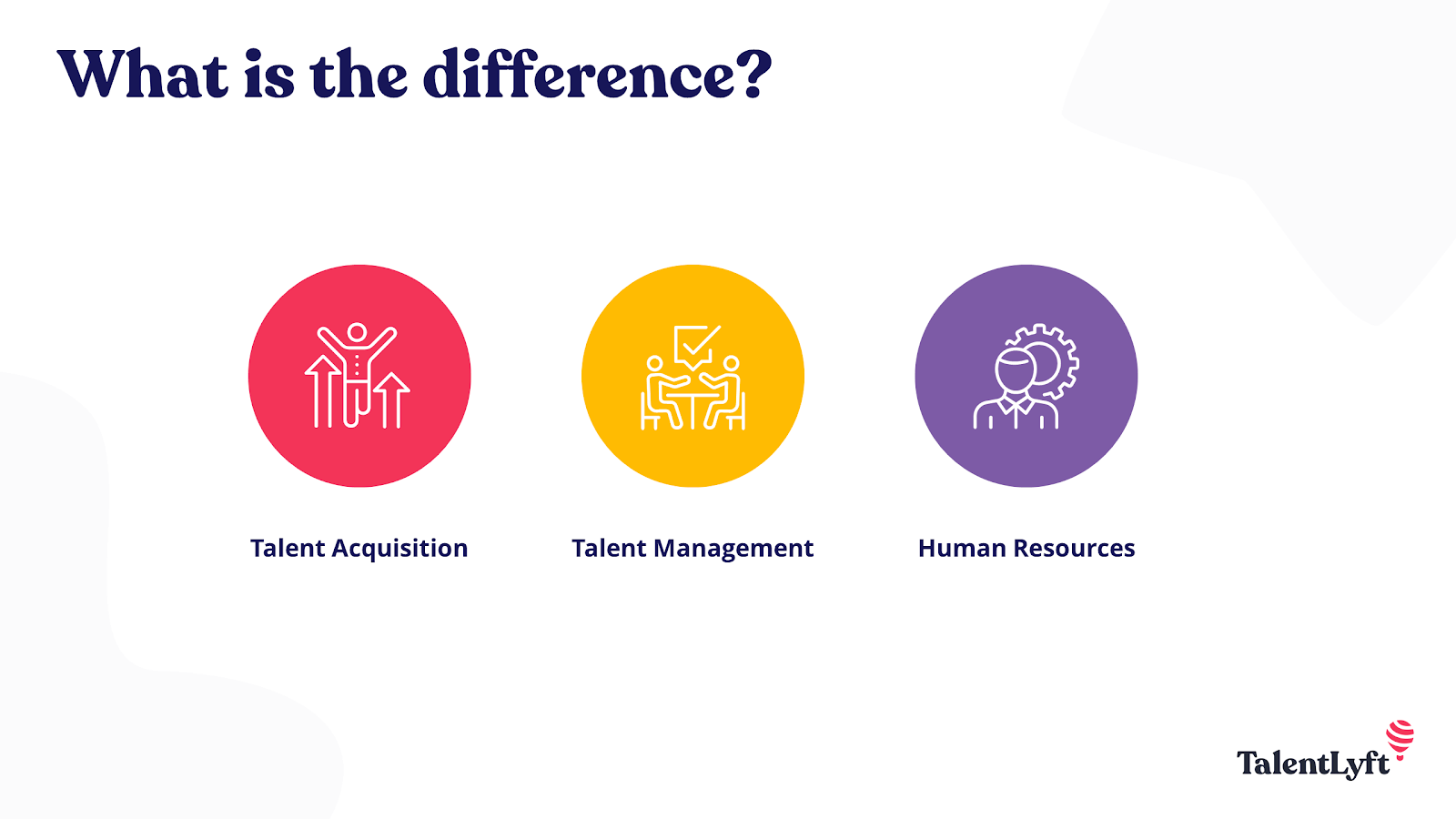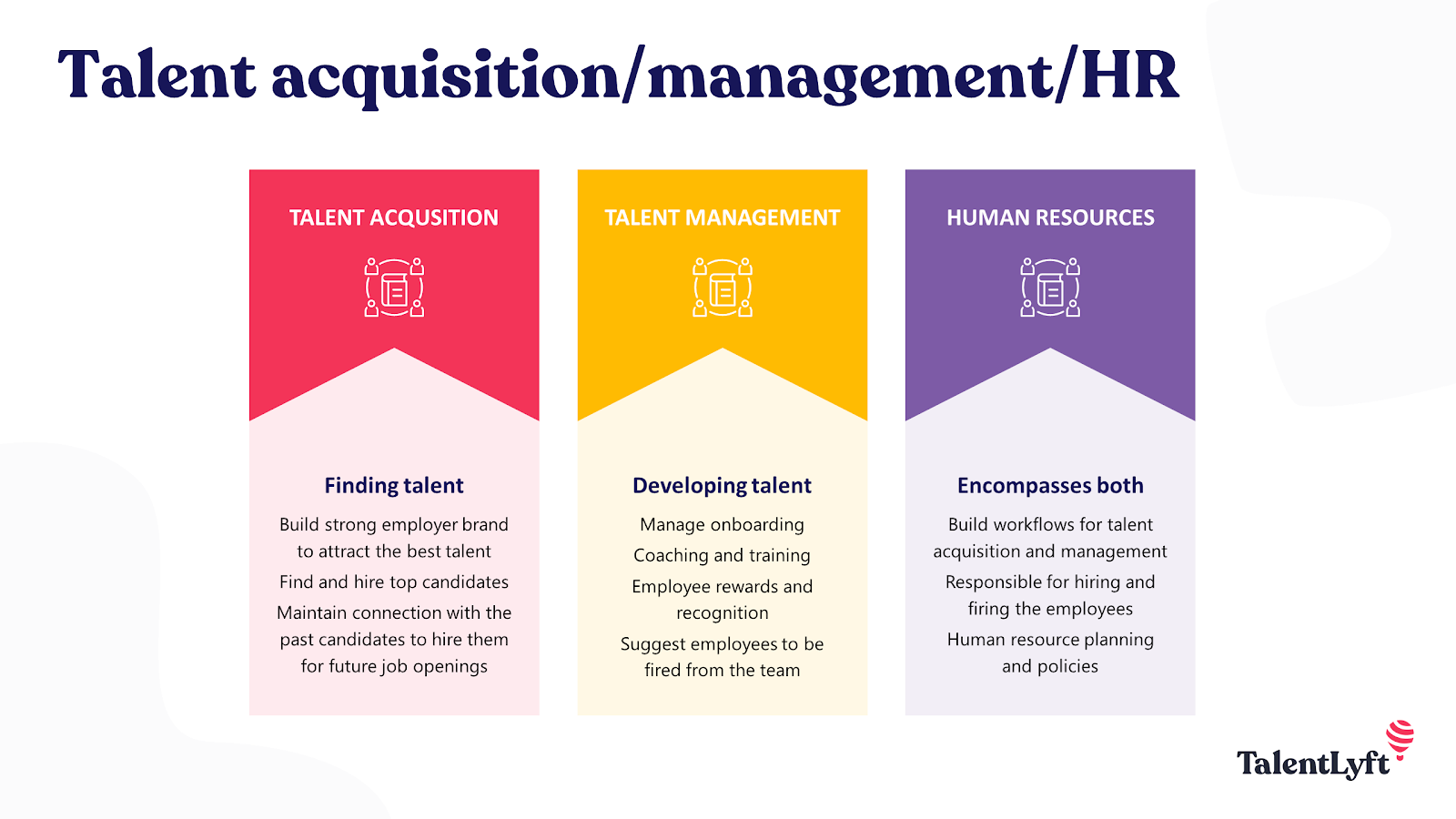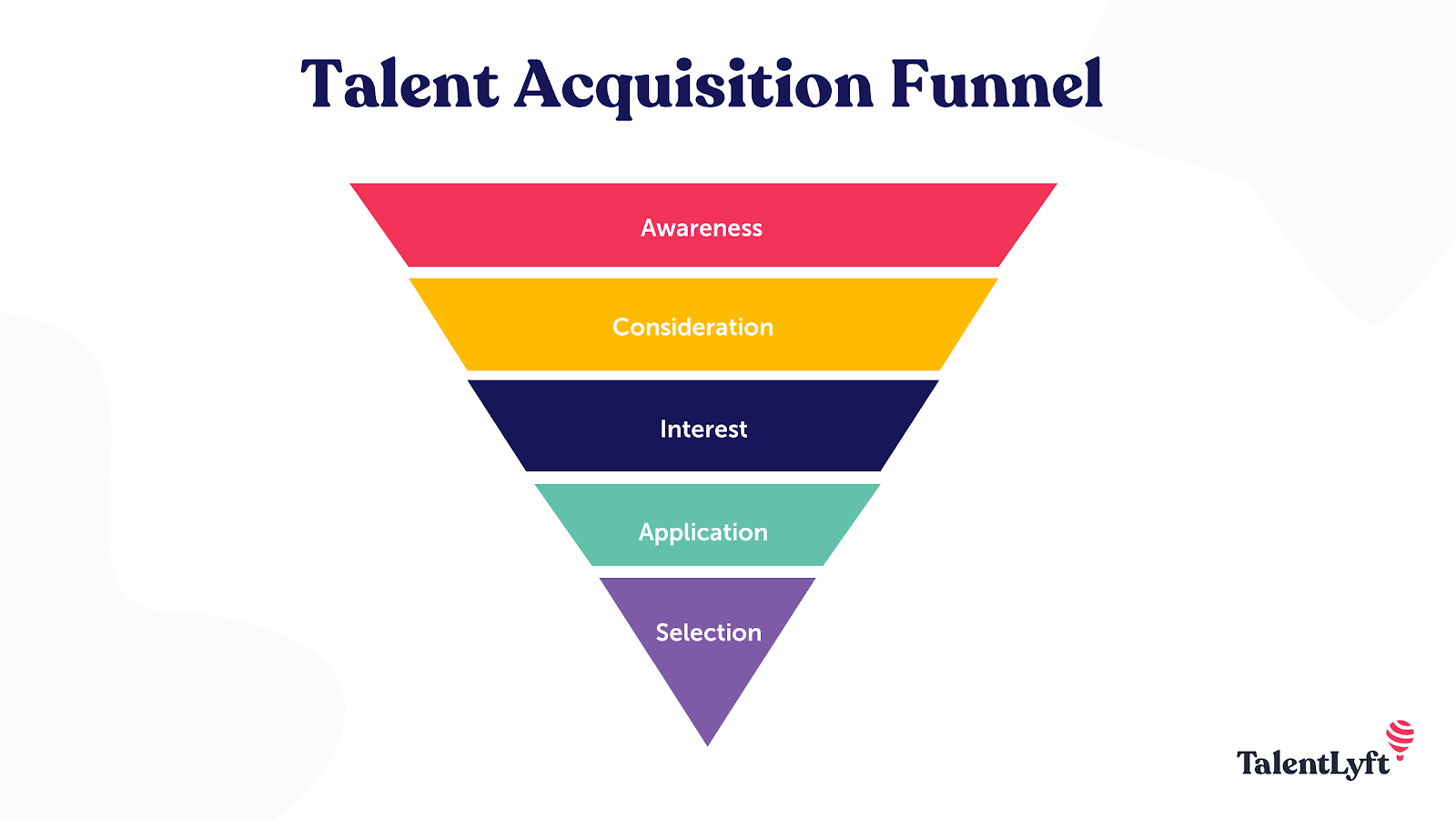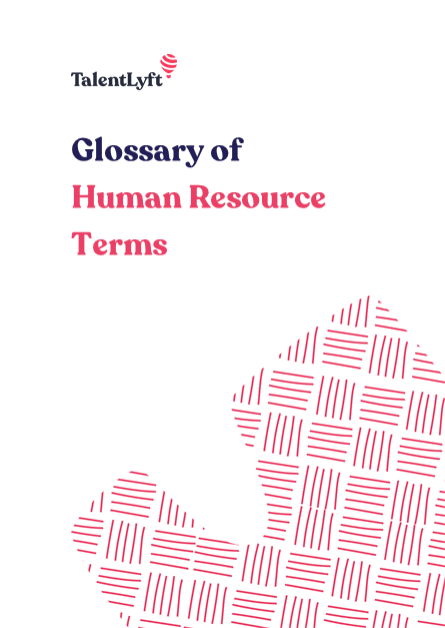![https://adoptoprod.blob.core.windows.net/article/vf_XNUus3k2k6H5lRDo5dQ.png]()
Talent acquisition, talent management, HR: What is the difference?
It is time to get some facts straight. Specifically, when it comes to the Human Resources department, there is clarity needed regarding lots of terminologies and issues. The very basic one being the difference between talent acquisition, talent management, and HR.
Lack of information is what leads to misconceptions. The same has happened in this case too. Often used synonymously, these three terms are distinct and are used individually in their own unique way.
If breaking Talent acquisition, talent management and HR to their very literal translations will yield different meanings and perfectly describe the functions they perform too.

The broad rainbow of Human Resource department
It can be safely said that the Human resources department is a magnanimous umbrella term that takes into due consideration several other small departments and tasks. HRs roles and duties are growing by the minute as we speak and so is the evaluation of this unit.
To put it correctly, there are three broad domains that the Human Resource Department takes under control. These are:
All the three mentioned above, take shade under the HR department and are its most important functioning limbs. It would be apt to say that an HR should diligently execute the process of talent hunting, sorting, hiring, onboarding, rewarding and management. All these, when done correctly to the last bit, will ensure a company's safety as far as it's workforce is concerned.
Talent Acquisition vs Talent Management vs Human Resource: Comparison Table
Let us find out some of the comparison between these three business resource building teams and how they can create a good workplace for growth.

Talent acquisition
Talent acquisition team is responsible for:
Acquiring and hiring the best candidates
The team work on pre onboarding
They hire candidates but have less authority on firing candidates
They build strong employer brand to attract the best talent
They maintain a connection with the past candidates to onboard them with future openings.
Talent Management
Talent Management team is responsible for:
Managing the candidate after onboarding
This team work on Post onboarding
They have authority to suggest employees to be fired from the team
This team is responsible for coaching and training resources
They Mentor rewards and promote current employees.
Human resources
HR team is responsible for:
Responsible for building workflows for acquisition and management
HR is responsible for monitoring the entire pre and post onboarding process
HR is responsible for both hiring and firing the employee from the team
They lead all the training and hiring teams and monitor the performance of candidates during the process
The HR team is responsible for human resource planning and policies, reward mechanism and other employee engagement programmes.
Talent Acquisition
Talent acquisition is a process of hiring and acquiring employees for a certain position. A crucial task as such needs to be carried out in a planned manner that will have the potential to draw attention to it.

This, in turn, will lead to those talents in the general audience to come out and apply for it. There are many factors that contribute to a successful talent acquisition process. Key ones being:
The need to acquire good, worthy and talented people cannot be emphasized enough. The managers and executives should be there to predict the potential vacant spots in the near future. Furthermore, the experience each candidate has for the recruitment process can be taken as a filter and sort people accordingly.
Companies and conglomerates make use of Artificial Intelligence and many other popular social media platforms like Facebook, LinkedIn, job boards, etc to reach out to any potential employee.
Key talent acquisition methods
Some of the recruitment methods that companies use for hiring the best talents are:
TA method #1: Employee referrals
According to a report by linkedin, employee referrals were found to be the best source of hiring talent in the team. If we study their data, it was observed that:
Companies can expand their potential to get the right candidate almost 10X with employee referral system.
Employee referral programs are an effective way as the current employees are committed to the organization and are always willing to see the growth of the workplace they are working for. They can identify the job well and hence their recommendations can be effective to get the right candidate on board in less time.
TA method #2: Careers site
Careers site matters a lot when you are looking to hire the best candidate. Most of the candidates will go through the company website to know more about their business before an interview or applying for an interview. If you have a dull website, probably the best talents may assume your company as not the perfect fit.
TA method #3: College recruiting
College recruitment is one for the best ways to find a talented new mind or freshers who are not framed according to a business workflow. This can help your business to get people who can think out of the box. Hiring a college student can be effective if you hire a candidate as an intern for a certain duration to identify his potential in the field and later take him as a full time employee.
TA method #4: Social media recruiting
These days, companies have been using social media extensively to hire the right candidates. Social media recruiting is one of the cost effective ways to go for a hiring campaign.
Talent management
Talent Management comprises strategies and techniques via which the employees or talent hired can be managed. Both in terms of their output, skills, and training. Talent management is basically the management or effective handling of the employees.
This has many strategies and techniques that come under it. Just filling in vacant positions won't do the task. Onboarding is a big process that puts things in motion in the talent development and management part. Two key processes involved:
Employee engagement
Keep the workplace environment conducive and positive. Alongside, boost employee morale by rewards, pep talks, bonuses, etc. Extrinsic motivation works best here.
Employee retention
Just hiring a person as an employee won't be enough. It's the management's job to look into maximum employee retention. Or that maximum employees stick to the firm. This employee retention rate can be maximum only if the workers find it beneficial to keep to the firm for long periods.
The team looking in managing people directly should make use of many different means and ways to fill in any gaps in the workplace and choose the best spot for any vacancy. Making any new recruit familiar to the place and alongside introducing him to the chain of responsibilities under his control are just the basics that the talent management team has to cover.
Similarly, carefully studying each position's demand in the company will lead to a better understanding of the talent needed to be hunted down. Also looking into future needs of hiring by devising working succession plans are also one such area that needs due vigilance.
Should you have different teams for talent acquisition, talent management and HR?
Only after understanding the urgency and need of the above three HR functionalities, can a firm actually come to a decision on where their HR Department would stand.
Each company will look into its own dynamics like size, budget, goals, etc and then may choose to give birth to these HR departments. It totally depends on a firm or a company if they want each three sub-department separate or under one autonomous control.
The relationship between talent acquisition, talent management and HR
There is not a war in these three departments nor do they compete with one another. Both talent acquisition and talent management are the most powerful wings of the HR department, responsible for making the Human Resource segment of an organization levitate and soar higher.
The better they work in synchronization, the more effectively the things can be executed, as far as HR responsibilities are concerned. Finding talent will put things in motion by the talent acquisition team and those hired will be further sent down to the talent managers who will do their best to polish these new recruits by, bringing their onboarding, training and management skills to use.
As a result, both these HR segments will put things in motion and make the most important and key roles of the HR department rolling. Each realm and domain has its own importance and one shouldn't be considered superior or inferior to the other. Both talent acquisition and talent management are needed importantly for HR to function properly.
Conclusion: Collaboration is the key!
Talent acquisition and management are key roles that are needed for the successful functioning of the HR Department. There may be separate teams looking into each of these fields but they should work in synchronization to bring about meaningful output.
A firm or a company should make the necessary arrangements for a fully functioning HR wing, that has both the talent acquisition and talent management subsections working in their full glory.
About the author
Snehil Prakash is an HR editor and Product marketer at CuteHR which is a time tracker based HR business tool. He ideally works on scaling small businesses but when he is away from his workplace then it’s all about reading, good coffee, and music.



















